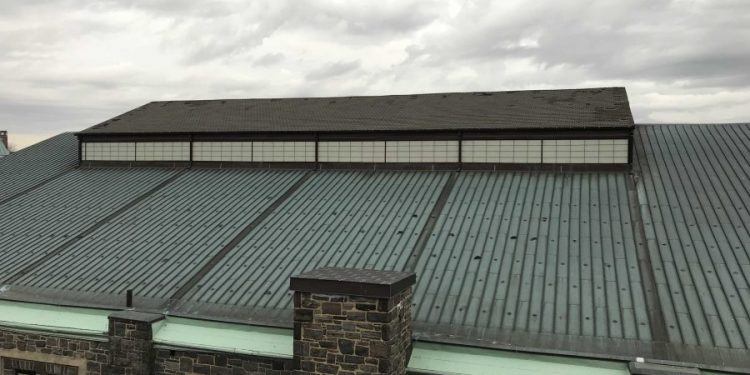By Hannah Gonzalez
This summer, solar panels will be installed on top of the parking garage and Campbell Hall. This step towards sustainability is a result of both the sustainable energy initiative passed down by Governor Cuomo’s office and the crowdfunding efforts of Fordham alumni.
Marc Valera, vice president for facilities management, pointed to the financial incentives provided by Governor Cuomo’s administration as a motivating factor in the installation of the panels on the garage. The school will receive credit on the electrical bills for its adoption of the panels, and will save $200,000 a year over the panel’s predicted life-span of 25 years.
“We get financial credit, $100,000 a year, and we can share about 40 percent of the power with the community,” said Valera.
The school is currently working to identify nonprofits which can receive the energy from the. This solar panel installation will be the largest of any New York City school, according to Valera.
The solar panels on Campbell were crowdfunded by a group of young alumni known as Rams for Innovation and Social Enterprise (RISE). According to alumnus Rebecca McSween, FCRH ’16, this project was a way to communicate the group’s commitment to sustainability, and capitalize on the members relevant experience as alumni.
“We were brainstorming ways that we could crystallize and communicate that sustainability on campus was important to us,” said McSween.
The group of alumni who took the lead in this project is comprised of Ross Garlick, GSB ’15, Jennifer Mongiori, GSB ’16, KC Schmitz, GSB ’15, Sean Sullivan, GSB ’16 and McSween. As undergraduates, many members had been involved with the Social Innovation Collaboratory. McSween was a member of the Sustainability Committee of the United Student Government (USG) during her time at Fordham.
“For us, it was about the strength of our commitment to sustainability that we had explored as undergraduates,” said McSween.
RISE was bolstered by the support of the Social Innovation Collaboratory and Development and University Relations (DAUR). By working with DAUR and reaching out to members’ own personal networks, the group managed to raise $30,910 over the late spring and summer of 2017.
The energy from the solar panels on Campbell Hall will be used to directly offset the energy in the building, according to Valera. The installation of the panels on both the residence hall and garage will be undertaken by a third party provider over the summer.
Large solar panels such as those which will be installed on the garage are of greater financial benefit than smaller panels, according to Valera.
“The larger ones are financially viable; the smaller ones are not,” said Valera.
Previous ventures into solar energy have not yielded favorable results for the university. The solar installation on the roof of Walsh Library was installed in 2010. Since then, it has not paid for itself, as its life is shorter than the years it would take to save an equivalent amount of money. Valera said monetary loss was an indication that that other energy-saving measures might be worth pursuing.
“There are other, better energy-reducing measures,” said Valera.
According to Valera, the replacement of Walsh Library’s lamps with LED bulbs reduced energy consumption by 30 percent. Going forward, facilities will be replacing all bulbs on campus with LED lights.
“We are looking at other locations for panels, but it’s not viable financially for us,” said Valera. “It’s better looking at other projects.”
Arielle Brender, FCRH ’18, vice president of sustainability, sees the solar panels as a positive move toward sustainability. However, she also stated that there is significantly more work to be done on the fronts of Fordham’s environmental and community impact.
“The implementation of this sizeable solar array is undoubtedly a step in the right direction, but it’s still just one step,” said Brender. “I’m looking forward to visiting the university five or 10 years from now to see a 100 percent solar-run campus, zero investment in fossil fuels, a recycling diversion rate above 70 percent and, perhaps above all, authentic and loving integration with its surrounding Bronx community.”
Brender also stated that, on the basis of the university’s Jesuit values, she doesn’t believe financial factors should constrain the university’s commitment to sustainability.
“The pervasive presence of oil in our economy, and America’s role in its extraction and burning, is responsible for immense conflict, violence and suffering throughout the world,” said Brender. “To ignore this truth in favor of economic convenience is for Fordham to actively refuse to put its money where its Jesuit values are.”
If you’re interested in learning more about the potential cost savings and benefits of installing solar panels, you can get a detailed savings report from reputable solar installation providers in your area. This report will provide you with valuable insights into how solar panels can contribute to your financial savings and sustainability goals.





